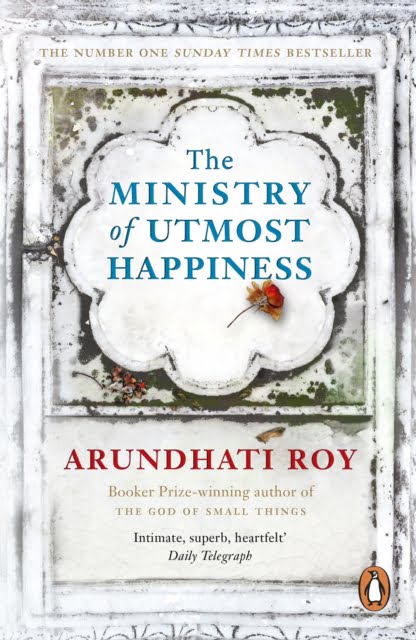

We encounter the odd, unforgettable Tilo and the men who loved her-including Musa, sweetheart and ex-sweetheart, lover and ex-lover their fates are as entwined as their arms used to be and always will be. The tale begins with Anjum-who used to be Aftab-unrolling a threadbare Persian carpet in a city graveyard she calls home. Its heroes are people who have been broken by the world they live in and then rescued, patched together by acts of love-and by hope. Each of its characters is indelibly, tenderly rendered.

It is an aching love story and a decisive remonstration, a story told in a whisper, in a shout, through unsentimental tears and sometimes with a bitter laugh. 150,000-copy announced first printing.New York Times Best Seller Longlisted for the Man Booker Prize Named a Best Book of 2017 by NPR, Amazon, Kirkus, The Washington Post, Newsday, and the Hudson Group A dazzling, richly moving new novel by the internationally celebrated author of The God of Small Things The Ministry of Utmost Happiness takes us on an intimate journey of many years across the Indian subcontinent-from the cramped neighborhoods of Old Delhi and the roads of the new city to the mountains and valleys of Kashmir and beyond, where war is peace and peace is war. Yet its complexity feels essential to Roy's vision of a bewilderingly beautiful, contradictory, and broken world. Sweeping, intricate, and sometimes densely topical, the novel can be a challenging read. Shifting fluidly between moods and time frames, Roy juxtaposes first-person and omniscient narration with "found" documents to weave her characters' stories with India's social and political tensions, particularly the violent retaliations to Kashmir's long fight for self-rule. When an abandoned infant girl appears mysteriously amid urban litter and both Anjum and Tilo have reasons to try to claim her, all their lives converge.

Tilottama, fascinates three very different men but loves only one, the elusive Kashmiri activist Musa Yeswi. The other protagonist, the woman who calls herself S. The dwelling she cobbles together on her family's graves becomes a paradoxically life-affirming enclave for the wounded, outcast, and odd. Embracing her identity as a woman, she moves from her childhood home in Delhi to the nearby House of Dreams, where hijra like herself live together, and then to a cemetery when that home too fails her. Anjum, one of its two protagonists, is born intersex and raised as a male. Appearing two decades after 1997's celebrated The God of Small Things, Roy's ambitious, original, and haunting second novel fuses tenderness and brutality, mythic resonance and the stuff of front-page headlines.


 0 kommentar(er)
0 kommentar(er)
